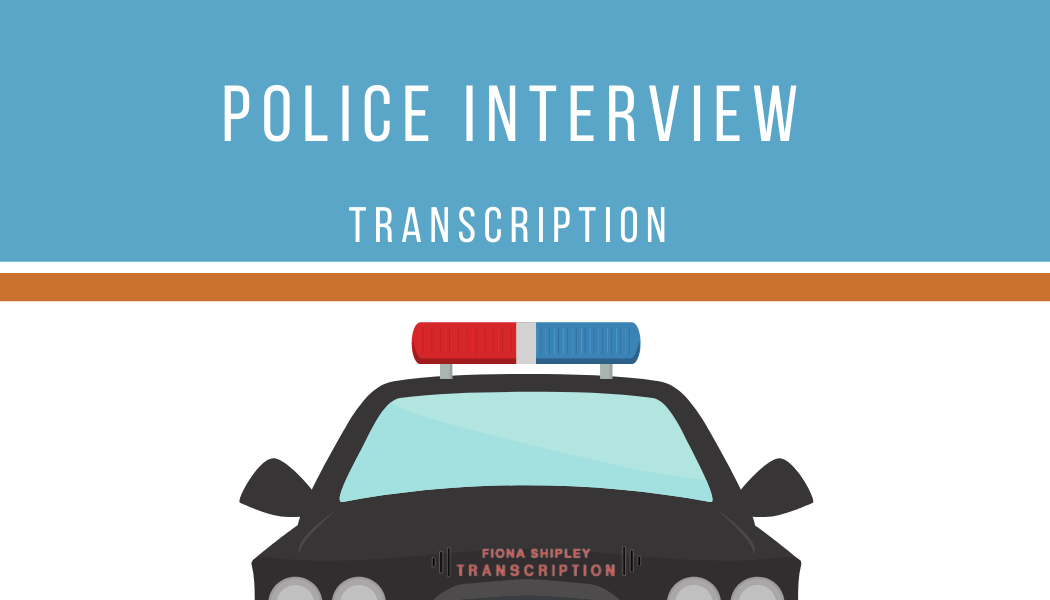Fiona Shipley transcription has been busy working for a client transcribing police interviews – it’s an area we have a vast amount of expertise in.
It’s interesting to see how the world is changing and the advances that are being made in this area. In some ways there are huge leaps being made in how technology is being used… and then in others very little has changed in decades – such as the use of cassette tapes for the recordings!
AI is already being deployed down under…
For example, in this article, an interesting example of being able to use real time transcription is already being used in Australia. When police are called to a domestic violence case, AI technology is deployed so that victims can be interviewed and their statements recorded at the same time. This is particularly important for these types of cases. In the past, there would be a time lag between the police initially attending an incident and the victim having to attend a formal interview at a later time, which often gave the abuser enough time to intimidate the victim into not coming forward with the full story.
The effect of the pandemic on police interviews
You’d be hard pressed to find any organisation that wasn’t affected by the pandemic in some way – and how police interviews were conducted was one such area that was forced to adapt. With face-to-face interviews no longer possible, police interactions with witnesses, victims and suspects of crime needed to go digital. This also extended to third-party professionals such as lawyers who rather than supporting suspects in person in the police station, have had to do so by phone or video.
What happens with this in the future remains to be seen, and already a study has been commissioned to determine whether these virtual interviews were both fair and effective – the results of which could have a significant impact on how some police interviews are conducted in the future.
And yet, the
Standards must remain high – whatever the future holds
When a crime is being investigated, police interviews are a vital component of the investigation, alongside CCTV images, fingerprints and forensic material that make up the body of evidence for an investigation. At the core of this is the fact that these interviews must be conducted according to the highest professional standards to be properly admissible in court.
Police interviews can:
- give direction to an investigation
- gather important supporting material, the use of which can lead to a prosecution or early release of an innocent person
- provide supporting evidence for the prosecution case, which helps save time, money and resources
- increase public confidence in the police service, especially for those who come into direct contact with the police such as witnesses and victims of crimes
The very highest of standards must be upheld, which is one of the reasons why they are recorded.
What does Fiona Shipley do for police interview transcription?
It’s very important when transcribing police interviews to be able to get a verbatim, accurate record of the interview, and often the transcription is needed with a fast turnaround. Choosing a transcription service that has the right expertise is key.
FSTL does exactly that for a number of clients, and our vast experience in this area continues to give our clients total peace of mind.
For all your transcription needs, please contact alex@fionashipley.com.

